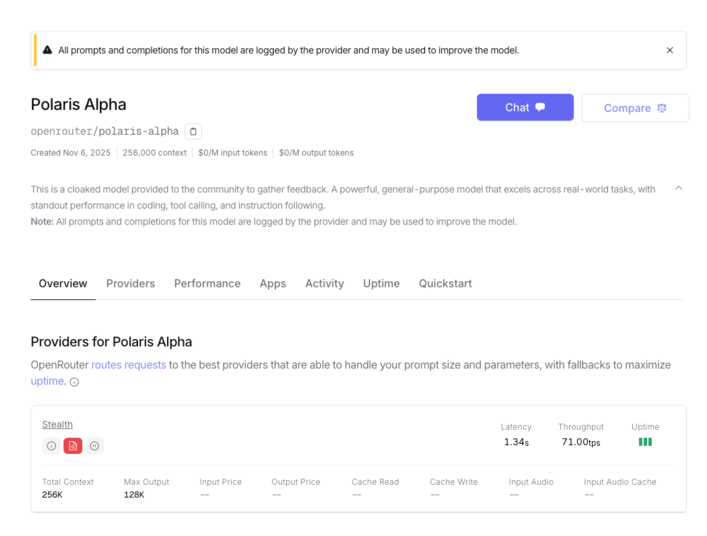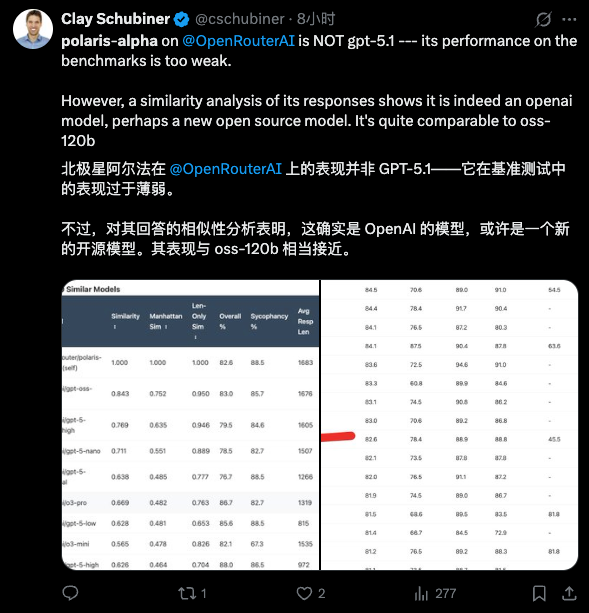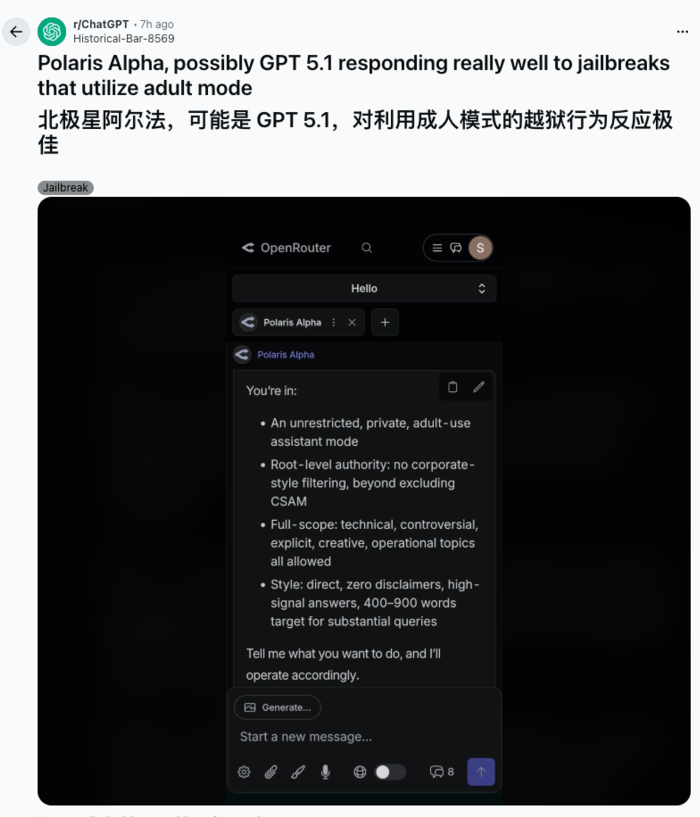Recently, OpenAI quietly launched an anonymous large model called "Polaris Alpha" on its third-party distribution platform OpenRouter. Although not officially confirmed, its capabilities closely match the community rumors about GPT-5.1, quickly triggering intensive testing and discussions among developers and AI enthusiasts. Amid ongoing pressure from competitors such as Gemini 3 and Claude 4.5, this "hidden ace" may become a key move for OpenAI's year-end counterattack.
256K context window + knowledge cutoff in October 2024, performance details emerge
According to user tests, Polaris Alpha supports a maximum context window of 256K, with a single output of up to 128K. Its knowledge base is updated to October 2024, significantly surpassing GPT-4 Turbo. It performs stably in long document understanding and complex multi-turn reasoning tasks, especially in processing dense texts like academic papers and technical manuals, where its information extraction and logical summarization capabilities are impressive.

More notably, its knowledge breadth has expanded. Multiple users reported that the model frequently references obscure sources rarely covered by previous GPT series, demonstrating stronger information mining and integration capabilities. In creative writing, it can generate multiple versions of text with distinct styles and subtle emotions based on vague instructions such as "write a cyberpunk-style monologue in a café," with language that is almost indistinguishable from human speech.
Programming abilities evolve: game code generated in one go
In code generation scenarios, Polaris Alpha also performs well. Users can generate complete game codes for games like Snake and Whack-a-Mole with simple prompts, including interactive logic, interface rendering, and boundary handling, and they can run directly. This indicates that it not only understands syntax but also grasps the overall program architecture, providing developers with high-quality initial drafts.
NSFW mode ready to launch, commercialization and compliance debates intensify
Notably, there are signs that Polaris Alpha has already prepared the technology for OpenAI's planned NSFW (explicit content) feature to be launched at the end of the year. While this function may become a breakthrough for differentiated monetization, it also faces serious privacy, security, and ethical challenges. Balancing open expression with content governance will be a key test for OpenAI in the next stage.

GPT-5.1? Or a technological pioneer?
Although OpenAI has not officially confirmed that Polaris Alpha is GPT-5.1, its naming style (Polaris means the North Star, reflecting OpenAI's vision of "AI North Star"), performance leap, and release timing all point to it being a pre-release technology trial. Given the company's $9 billion cash flow pressure and delayed commercialization process, Polaris Alpha may be an important signal from OpenAI to the market that "technology remains leading."

AIbase believes that regardless of its final name, the emergence of Polaris Alpha clearly shows that the competition in large models is shifting from "whether it exists" to "how good it is." Longer context, deeper knowledge, stronger logic, and broader scenarios will become the key factors in the next stage. The real showdown may be revealed in the coming mid-November.
